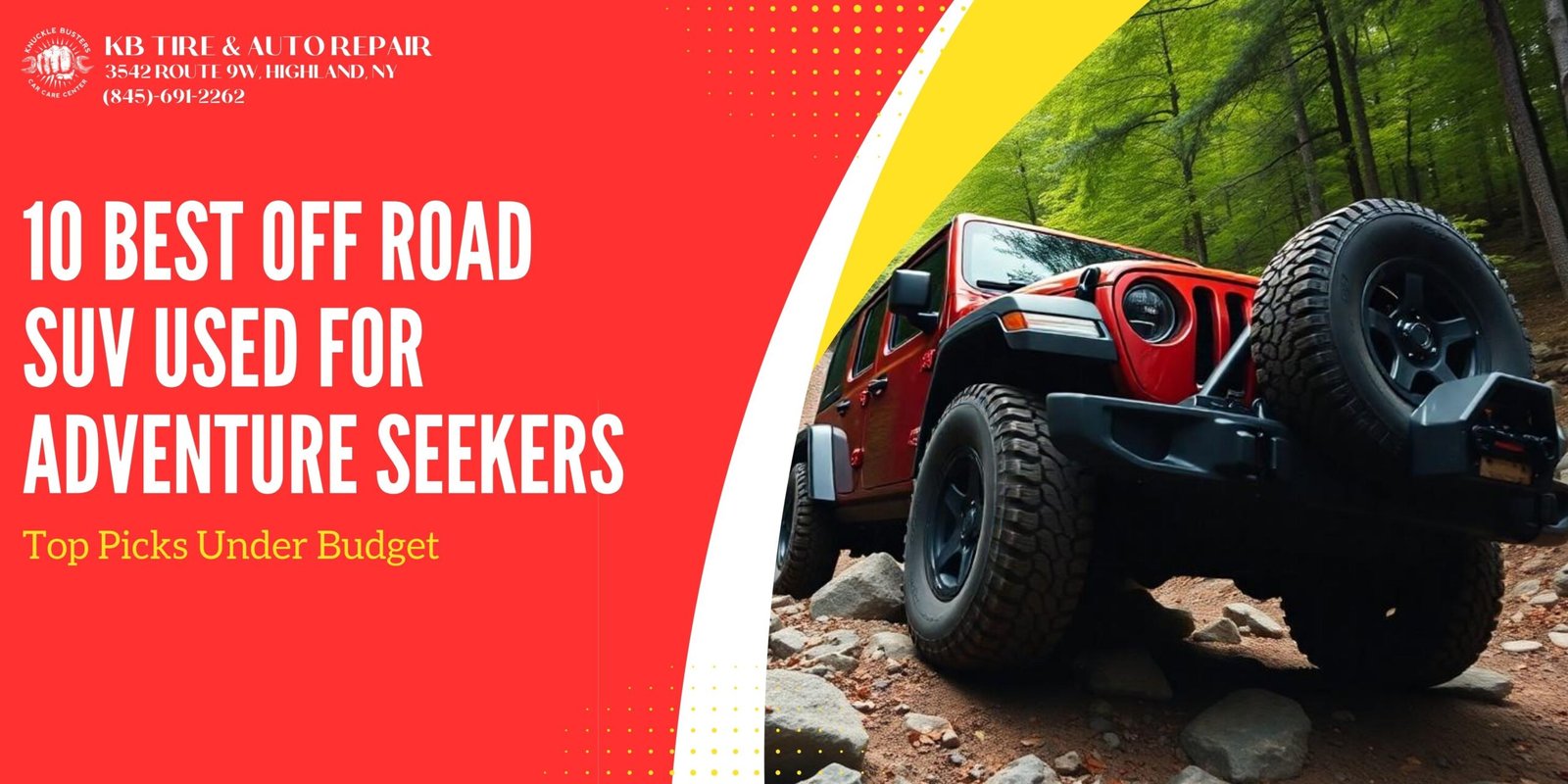Ready to conquer the great outdoors without breaking the bank? A used off-road SUV might be your perfect adventure companion. These rugged vehicles combine durability, capability, and value—giving you the freedom to explore places most cars simply can’t reach.
When shopping for a pre-owned off-road SUV, you’ll want to focus on models with proven reliability, proper 4WD systems, and adequate ground clearance. Many excellent options exist on the used market, from legendary trail-blazers like the Jeep Wrangler to underrated gems such as the Toyota 4Runner and Land Rover Discovery. The right choice depends on your specific needs, budget, and the type of off-roading you’re planning to tackle.
Why Consider a Used Off-Road SUV?
Cost Savings Without Compromising Capability
Purchasing a used off-road SUV offers significant financial advantages compared to buying new. The average new SUV experiences 20-30% depreciation in the first year alone. By choosing a pre-owned model that’s 3-5 years old you can often save $10,000-$20,000 while still getting a vehicle with plenty of life left. This approach allows you to access higher-end models with premium off-road packages that might otherwise be outside your budget. Many used off-road SUVs still offer the same fundamental capabilities as their newer counterparts at a fraction of the cost.
Proven Reliability and Track Record
Used off-road SUVs come with established reliability histories that new models simply can’t provide. You can research how specific models have performed in challenging conditions over time rather than gambling on unproven technology. Models like the Toyota 4Runner and Jeep Wrangler have demonstrated exceptional longevity with many examples surpassing 200,000 miles when properly maintained. Owner forums and professional review archives offer valuable insights into common issues and how different models handle specific terrain types over years of ownership.
Aftermarket Support and Customization Options
Popular off-road SUV models typically develop robust aftermarket support over time. When purchasing a used model with an established following you’ll find numerous upgrade options from lift kits to specialized bumpers. The Toyota Land Cruiser Lexus GX460 and Nissan Xterra all benefit from extensive aftermarket communities that have developed proven modification pathways. This ecosystem of parts and expertise makes it easier and often more affordable to customize your vehicle for specific off-road challenges compared to newer models where aftermarket options may be limited or untested.
Environmental Considerations
Extending the life of an existing vehicle through used purchase represents a more environmentally conscious choice. Manufacturing a new SUV generates approximately 29 tons of carbon dioxide equivalent while buying used eliminates this production impact. Many older off-road SUVs were built with simpler mechanical systems that skilled owners can maintain themselves reducing waste from replacement parts. Though fuel efficiency may lag behind newer models the environmental cost of production often outweighs efficiency gains for many years of typical use.
Top Used Off-Road SUVs for Adventure Enthusiasts

When searching for the best off-road SUV used options, several models stand out for their exceptional trail capabilities and reliability. These vehicles have proven themselves in challenging terrain while maintaining their value and performance over time.
Jeep Wrangler: The Iconic Off-Roader
The Jeep Wrangler remains the quintessential off-road vehicle with its instantly recognizable silhouette and legendary capability. Used Wranglers from 2012 onwards offer an excellent balance of modern features and classic ruggedness. The JK generation (2007-2018) provides solid axles front and rear enhanced by generous approach and departure angles that make obstacle navigation straightforward. You’ll find most used Wranglers come with aftermarket modifications already installed which can save you thousands in upgrades. Look for the Rubicon trim for factory locking differentials Dana 44 axles and an electronic sway bar disconnect system that dramatically improves articulation on technical terrain.
Toyota 4Runner: Reliability Meets Adventure
The Toyota 4Runner has earned its reputation as one of the best off-road SUV used options thanks to its exceptional reliability and impressive capability. Fifth-generation models (2010-present) feature body-on-frame construction and available TRD Off-Road and TRD Pro packages that include Bilstein shocks upgraded suspension components and Toyota’s Multi-Terrain Select system. The 4.0L V6 engine is virtually bulletproof with many examples easily surpassing 300000 miles with proper maintenance. You’ll appreciate the 4Runner’s more refined interior compared to the Wrangler making it ideal for enthusiasts who need an everyday driver that can transform into a weekend warrior.
Land Rover Defender: Classic British Capability
The Land Rover Defender represents classic British engineering with extraordinary off-road prowess. Older models (pre-2016) have become increasingly collectible while offering unmatched character and capability. The Defender’s permanent 4WD system with center differential lock provides exceptional traction in varied conditions. Its simple yet robust construction allows for easy field repairs—a crucial consideration for remote adventures. While parts and maintenance can be costlier than domestic alternatives the Defender’s unique presence and capabilities make it worth considering. For serious adventure seekers look for 90 (short wheelbase) or 110 (long wheelbase) models with the TD5 diesel engine which offers excellent torque and efficiency.
Jeep Grand Cherokee: Comfort and Capability
The Jeep Grand Cherokee strikes an impressive balance between on-road comfort and off-road capability. The fourth generation (2011-2021) features Jeep’s Quadra-Lift air suspension system that provides up to 10.8 inches of ground clearance when needed. The available Quadra-Drive II 4WD system with rear Electronic Limited Slip Differential delivers exceptional traction in challenging conditions. You’ll find that Trailhawk models offer the best off-road credentials with skid plates all-terrain tires and Jeep’s Selec-Terrain traction management system. The Grand Cherokee’s interior comfort and available luxury features make it perfect for those who want to tackle trails without sacrificing daily driving refinement.
Toyota Land Cruiser: Legendary Durability
The Toyota Land Cruiser stands as the gold standard for combining luxury comfort and uncompromising off-road capability. Models from the 200 Series (2008-2021) provide full-time 4WD with a Torsen limited-slip center differential and Toyota’s Kinetic Dynamic Suspension System that enhances both on-road handling and off-road articulation. Land Cruisers maintain their value exceptionally well due to their renowned durability and relatively limited supply in the US market. While purchase prices remain higher than other used off-road SUVs the Land Cruiser’s legendary reliability means lower long-term ownership costs. For the ultimate adventure vehicle look for models equipped with the optional Multi-Terrain Select system and Crawl Control technology that effectively functions as an off-road cruise control.
Key Features to Look for in Used Off-Road SUVs
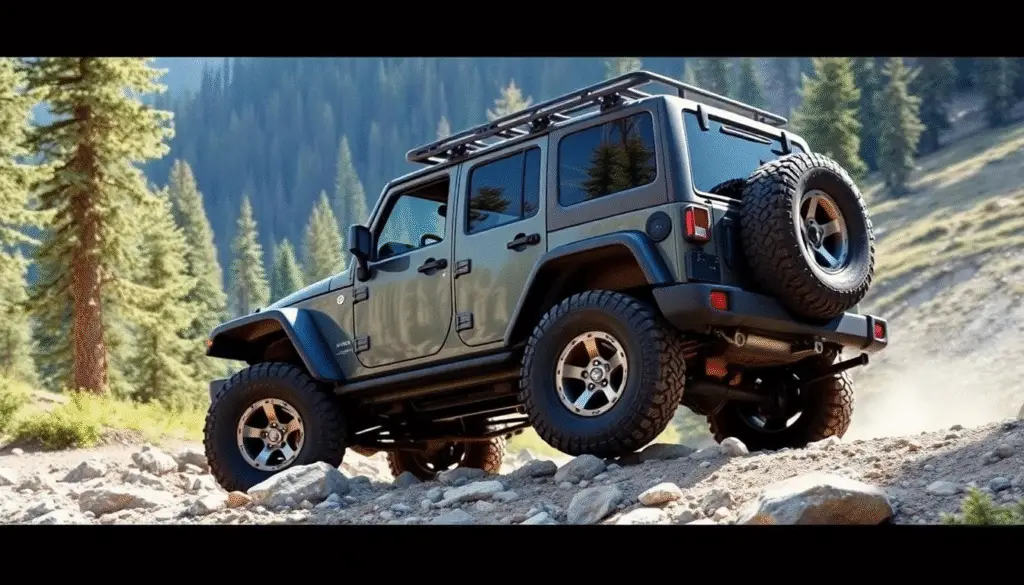
When shopping for the best used off-road SUVs you need to evaluate specific technical features that determine their capability in challenging terrain. These key elements can make the difference between conquering difficult trails and getting stuck in the mud.
4WD and AWD Systems Explained
Four-wheel drive (4WD) and all-wheel drive (AWD) systems distribute power to all four wheels but function differently in off-road conditions. Traditional 4WD systems typically offer low-range gearing which is essential for crawling over rocks and through deep mud. Look for used SUVs with selectable 4WD that allows you to switch between 2WD for fuel efficiency on highways and 4WD for off-road adventures. The best used off-road SUVs like the Toyota 4Runner and Jeep Wrangler feature robust 4WD systems with 2-speed transfer cases that provide the torque multiplication needed for serious trail riding. Modern AWD systems found in crossovers can handle light off-roading but generally lack the low-range gearing necessary for tackling more extreme conditions.
Ground Clearance and Approach Angles
Ground clearance is the measurement from the lowest point of your vehicle’s undercarriage to the ground and directly affects your SUV’s ability to clear obstacles. For serious off-roading seek used models with at least 8.5 inches of clearance. Equally important are the approach break-over and departure angles which determine how steep an obstacle your vehicle can climb without scraping its front bumper underbody or rear bumper. The Jeep Wrangler Rubicon for example offers approach angles around 44 degrees and departure angles of approximately 37 degrees making it exceptionally capable on rough terrain. When evaluating used off-road SUVs check underneath for signs of damage that might indicate insufficient clearance for the previous owner’s activities.
Locking Differentials and Traction Control
Locking differentials provide superior traction by ensuring power reaches all wheels even when some lose contact with the ground. When shopping for used off-road SUVs prioritize models with at least a rear locker while front and rear lockers offer the maximum capability. Factory electronic locking differentials found in vehicles like the Toyota Land Cruiser or aftermarket options added to Jeep Wranglers significantly enhance off-road performance. Advanced traction control systems like Toyota’s A-TRAC or Jeep’s Selec-Terrain complement differentials by automatically applying brake pressure to spinning wheels redirecting torque to those with grip. When test-driving potential purchases check that all traction systems function properly as repairs can be costly and complex.
Suspension Systems and Articulation
A capable off-road suspension system balances articulation (wheel travel) with stability. Solid axle suspensions found in the Jeep Wrangler and older 4Runners provide excellent articulation allowing wheels to maintain ground contact on uneven terrain. Independent suspension systems offer better on-road comfort and handling but typically sacrifice some off-road capability. Many premium used off-road SUVs feature adaptive suspension systems that can be adjusted for different conditions. When evaluating a used off-road SUV check for signs of suspension wear including leaking shocks uneven tire wear or excessive body roll. Aftermarket suspension modifications can enhance capability but require proper installation and may affect on-road performance. Look for used models with quality upgrades from reputable manufacturers if modifications have been made.
Budget Considerations for Used Off-Road SUVs
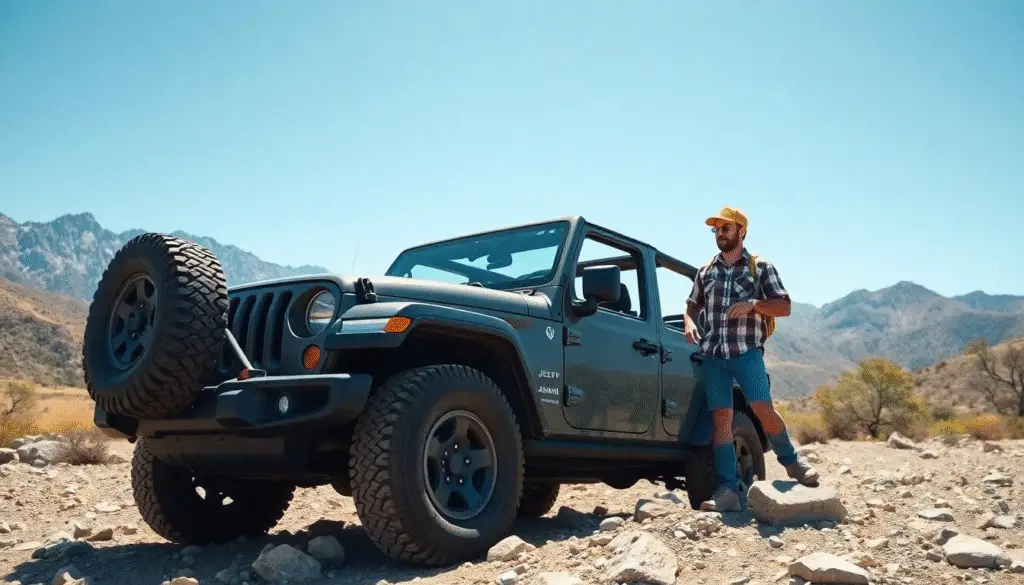
Finding the best used off-road SUV requires balancing your adventure aspirations with financial reality. Your budget will significantly influence which models are accessible to you and what features you can expect. Let’s explore the most compelling options across different price ranges to help you make an informed decision.
Best Value Options Under $15,000
In the sub-$15,000 range you can find several capable off-road SUVs that deliver impressive performance without breaking the bank. Older Jeep Wrangler TJ models (1997-2006) offer exceptional off-road capability with their solid axle design and robust 4WD system. For around $10,000-$14,000 you can find well-maintained examples with reasonable mileage.
The Nissan Xterra (2005-2015) represents another excellent value option typically available between $8,000-$14,000. These rugged body-on-frame SUVs come with strong V6 engines and respectable ground clearance making them suitable for moderate trail use.
For Toyota reliability at this price point look for early 2000s 4Runner models or older Toyota FJ Cruisers. While higher-mileage examples will dominate this category their legendary durability means many can still deliver years of off-road adventure.
Mid-Range Choices ($15,000-$30,000)
The mid-range budget opens up significantly more options with lower mileage and newer model years. Fourth and fifth-generation Toyota 4Runners (2003-2009 and 2010-2023) become accessible at this price point offering improved comfort technology and Toyota’s renowned reliability.
Jeep Wrangler JK models (2007-2018) fall squarely in this range with later years and lower mileage examples toward the upper end. These provide more modern amenities than older Wranglers while maintaining exceptional off-road credentials.
The Lexus GX470 and GX460 represent hidden gems in this category. Essentially luxury-appointed Land Cruiser Prados they offer surprisingly capable off-road performance with added comfort features. Expect to pay $20,000-$30,000 for well-maintained examples with moderate mileage.
Nissan Frontier Pro-4X and Toyota Tacoma TRD Off-Road pickups also become viable options in this price range for those who prefer truck utility with their trail capability.
Premium Used Off-Roaders ($30,000+)
At the premium end expect late-model vehicles with advanced off-road technology packages and luxury features. Recent Toyota 4Runner TRD Pro models command prices near $40,000 but deliver factory-tuned off-road suspension Fox shocks and additional underbody protection.
Land Rover Discovery and Range Rover Sport models with the optional off-road packages offer a blend of luxury and remarkable trail capability. While maintenance costs run higher these vehicles provide sophisticated terrain response systems and air suspension that can raise ground clearance on demand.
Newer Jeep Wrangler Rubicon models (2018+ JL generation) typically start around $35,000 used but deliver front and rear locking differentials disconnecting sway bars and enhanced approach angles straight from the factory.
For those seeking the ultimate combination of luxury and off-road prowess the Toyota Land Cruiser represents the pinnacle in this category. Expect to pay $45,000-$65,000 for recent models but gain legendary reliability and go-anywhere capability with premium appointments.
Common Issues to Watch for When Buying Used
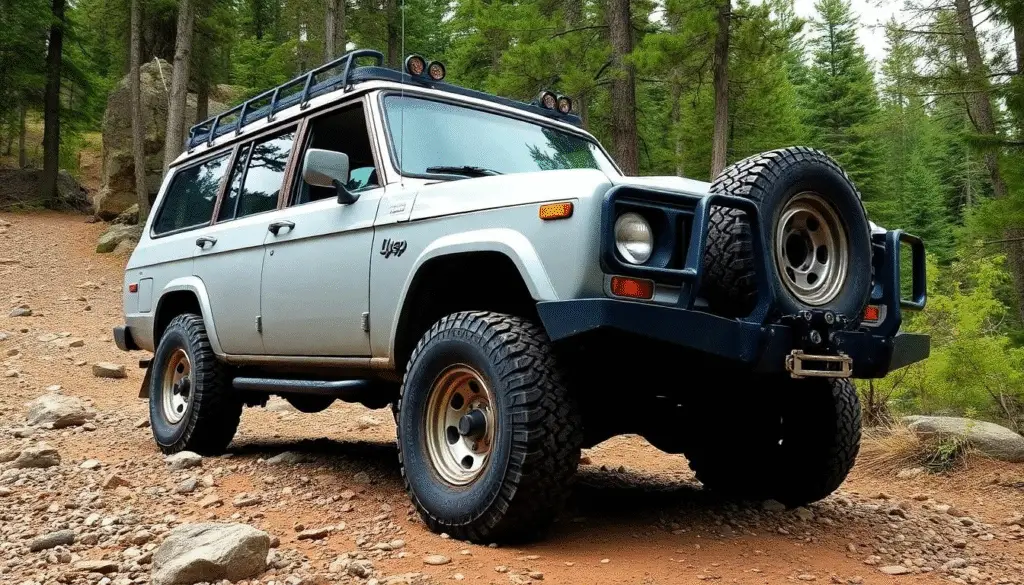
When shopping for the best off-road SUV used, knowing potential problems can save you thousands in unexpected repairs. Even the most capable off-road vehicles develop specific issues over time that you should carefully inspect before purchasing.
Drivetrain and Transfer Case Problems
The 4WD system is the heart of any off-road SUV and often the first to show signs of abuse. Listen for unusual grinding noises when shifting between 4WD modes which typically indicates worn transfer case components. Check for leaking differentials and inspect CV joints and axles for tears or cracks. On vehicles like the Jeep Wrangler or Toyota 4Runner check that the transfer case engages smoothly in all modes. Replacement costs for these components can range from $1,500 to $4,000 depending on the model making this inspection critical before purchase.
Rust and Undercarriage Damage
Underbody rust is particularly concerning for used off-road SUVs that have seen water crossings or winter road salt. Carefully inspect frame rails suspension mounting points and skid plates for significant rust penetration. The Land Rover Defender and older Jeep models are especially prone to frame rust issues. Take time to check areas where mud and moisture collect such as inside fender wells around door sills and underneath floor mats. Remember that surface rust may be acceptable but structural rust compromises safety and can make a vehicle unrepairable.
Modified vs. Stock: Pros and Cons
Modified off-road SUVs present a unique set of considerations. Professionally installed lift kits quality aftermarket bumpers and well-engineered suspension upgrades can enhance capability and potentially add value. However poorly executed modifications often cause premature wear to drivetrain components altered geometry and reliability issues. When evaluating modified vehicles like customized Wranglers or 4Runners ask for documentation of all modifications including who performed the work. Stock vehicles generally offer better reliability and resale value but may require additional investment to achieve your desired off-road performance. If you’re considering a modified vehicle budget for potential reversal of problematic modifications or additional maintenance of aftermarket parts.
Performance Comparison: On-Road vs. Off-Road Capabilities

When shopping for the best used off-road SUV you’ll need to consider how these vehicles perform in different environments. Most SUVs must balance everyday commuting with weekend adventures making this performance comparison crucial to finding your ideal match.
Highway Comfort and Daily Driving
Even the most capable off-road SUVs need to function as daily drivers. The Toyota 4Runner offers a surprisingly comfortable highway ride despite its rugged off-road credentials maintaining stability at highway speeds. In contrast the Jeep Wrangler especially older models tends to wander slightly on highways and produces more wind noise due to its boxy design and removable top.
Newer generations of the Land Rover Discovery and Jeep Grand Cherokee excel in this category offering car-like handling on paved roads with responsive steering and reduced body roll. The Nissan Xterra falls somewhere in the middle delivering decent on-road manners though with more road noise than luxury-oriented options.
| Model | Highway Comfort (1-10) | Road Noise Level | Fuel Economy (City/Hwy) |
|---|---|---|---|
| Toyota 4Runner | 7 | Moderate | 16/19 mpg |
| Jeep Wrangler | 5 | High | 17/21 mpg |
| Land Rover Discovery | 8 | Low | 15/21 mpg |
| Jeep Grand Cherokee | 8 | Low | 18/25 mpg |
| Nissan Xterra | 6 | Moderate-High | 16/22 mpg |
Trail Performance and Obstacle Navigation
Off-road is where these SUVs truly differentiate themselves. The Jeep Wrangler Rubicon with its factory locking differentials solid axles and excellent articulation remains the benchmark for technical trail performance. Its approach angle of 44 degrees and generous ground clearance allow it to tackle obstacles that would stop other vehicles.
The Toyota 4Runner TRD Pro and Land Cruiser shine on varied terrain with their sophisticated traction control systems and durable components. They might not match the Wrangler’s extreme articulation but they offer more predictable handling on loose surfaces and exceptional reliability during extended backcountry trips.
For rock crawling the Land Rover Defender provides impressive capability with its Terrain Response system that automatically adapts to different surfaces. Meanwhile the Nissan Xterra and Jeep Grand Cherokee deliver capable off-road performance at their respective price points though they may require more careful line selection on technical trails.
All-Weather Performance
Weather adaptability is another critical factor when evaluating used off-road SUVs. Vehicles like the Jeep Grand Cherokee and Land Rover Discovery handle snow and ice exceptionally well with sophisticated traction management systems. The Toyota 4Runner and Land Cruiser perform reliably in extreme conditions from desert heat to arctic cold making them favorites for all-season adventurers.
The Jeep Wrangler with proper tires excels in deep snow and mud but its lighter weight can sometimes be a disadvantage in high winds. Consider your local climate and typical adventure destinations when evaluating all-weather capability in your used off-road SUV search.
Towing and Payload Capacity
If you’re planning to haul gear or tow trailers as part of your off-road lifestyle payload and towing capacities become important performance metrics. The Jeep Grand Cherokee and Land Rover Discovery lead this category with towing capacities reaching 7,200 and 8,200 pounds respectively in properly equipped models.
The Toyota Land Cruiser offers excellent stability when towing with capacity around 8,100 pounds. The 4Runner can manage around 5,000 pounds while the Wrangler typically handles between 2,000-3,500 pounds depending on the generation and configuration. These differences can significantly impact your adventure possibilities especially if you’re planning to tow boats ATVs or camping trailers.
When comparing on-road versus off-road performance remember that the best used off-road SUV for your needs will balance capability in both environments according to your specific priorities. Vehicles that excel in extreme off-road situations often require some compromise in on-road comfort while those offering smoother highway performance might need aftermarket modifications to match the capability of more purpose-built off-roaders.
Maintenance Costs and Reliability Rankings
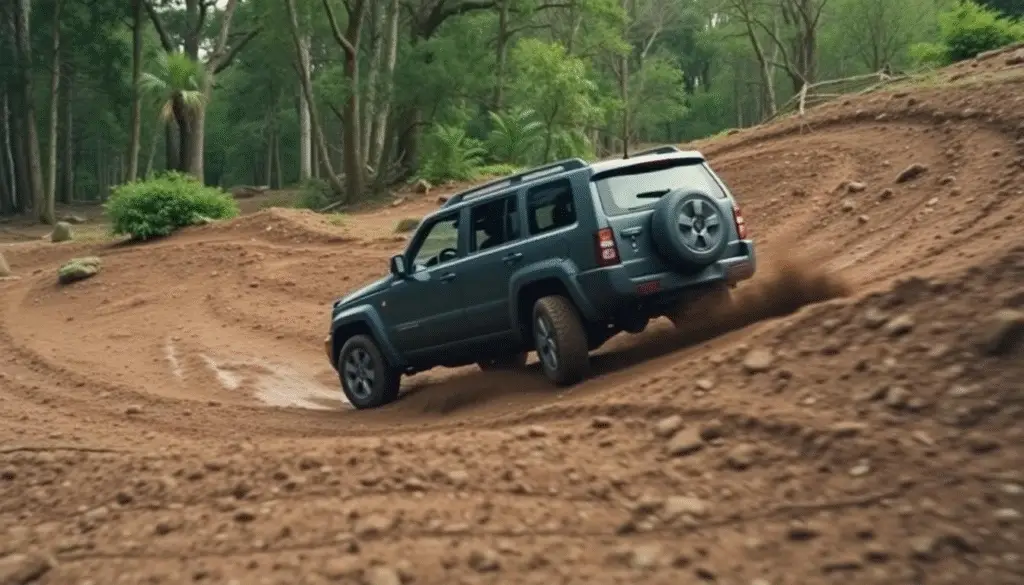
When shopping for the best used off-road SUVs, understanding maintenance costs and reliability rankings can save you thousands of dollars over the vehicle’s lifetime. These factors often determine whether your adventure-ready purchase becomes a dependable companion or a money pit.
Long-Term Ownership Expenses
The true cost of owning a used off-road SUV extends well beyond the purchase price. Toyota’s lineup consistently demonstrates lower long-term expenses with the 4Runner and Land Cruiser averaging 40% less in annual maintenance costs compared to European competitors. Here’s how annual maintenance costs typically break down for popular off-road SUVs:
| Model | Average Annual Maintenance | Common Repair Costs | Parts Availability |
|---|---|---|---|
| Toyota 4Runner | $514 | $250-$800 | Excellent |
| Jeep Wrangler | $694 | $300-$1,200 | Very Good |
| Land Rover Discovery | $1,240 | $600-$2,500 | Limited |
| Toyota Land Cruiser | $643 | $400-$1,500 | Good |
| Jeep Grand Cherokee | $666 | $350-$1,100 | Very Good |
| Nissan Xterra | $543 | $300-$900 | Good |
When budgeting for your used off-road SUV purchase always factor in these ongoing expenses especially for models with more complex systems like air suspensions or advanced electronic differentials.
Most Reliable Off-Road SUV Models
Reliability varies significantly across off-road SUV models with certain vehicles consistently outperforming others in long-term durability:
- Toyota 4Runner: Consistently ranks in the top tier for reliability with many examples surpassing 300,000 miles with minimal major repairs
- Lexus GX470/460: Shares the 4Runner’s platform but adds luxury features while maintaining excellent reliability scores
- Jeep Wrangler: While requiring more regular maintenance than Toyota models the simple mechanical design makes repairs straightforward and affordable
- Nissan Xterra (2005-2015): Often overlooked but offers impressive reliability when properly maintained particularly models after the 2009 refresh
- Toyota Land Cruiser: The gold standard for combining luxury with bulletproof reliability earning it legendary status among off-road enthusiasts
Models to approach with caution include certain years of the Land Rover Discovery (particularly 2005-2009) which can experience costly electrical and air suspension issues and the 2011-2012 Jeep Grand Cherokee with its problematic early ZF transmission.
Comparing Drivetrain Longevity
The drivetrain components often determine how long your used off-road SUV will last through challenging conditions. Toyota’s drivetrain systems typically outlast competitors with their transfer cases and differentials requiring minimal intervention even after heavy off-road use.
Jeep’s 4.0L inline-six engine (found in older Wranglers) has earned a reputation for exceptional durability while their 3.6L Pentastar has proven generally reliable since its 2012 introduction. However Jeep transfer cases may require more frequent maintenance especially in models that see regular off-road use.
Land Rover products deliver exceptional capability but their complex electronic systems and air suspensions often require specialized service and more frequent repairs as they age. Budget accordingly if you’re drawn to British off-road engineering.
Preventative Maintenance for Off-Road Vehicles
Off-road vehicles require more diligent maintenance schedules than typical passenger cars. After purchasing a used off-road SUV consider these essential maintenance practices:
- Fluid checks after water crossings: Inspect differential transmission and transfer case fluids for milky appearance indicating water contamination
- More frequent oil changes: Consider 3,000-5,000 mile intervals if regularly engaging in difficult off-road driving
- Thorough undercarriage cleaning: Remove mud debris and salt to prevent accelerated corrosion especially after trail days
- Suspension inspection: Regularly check bushings shocks and control arms which experience more stress during off-road use
Following these practices can dramatically extend the life of your used off-road SUV saving you money while ensuring it’s ready for your next adventure.
Pros and Cons of Used Off-Road SUVs
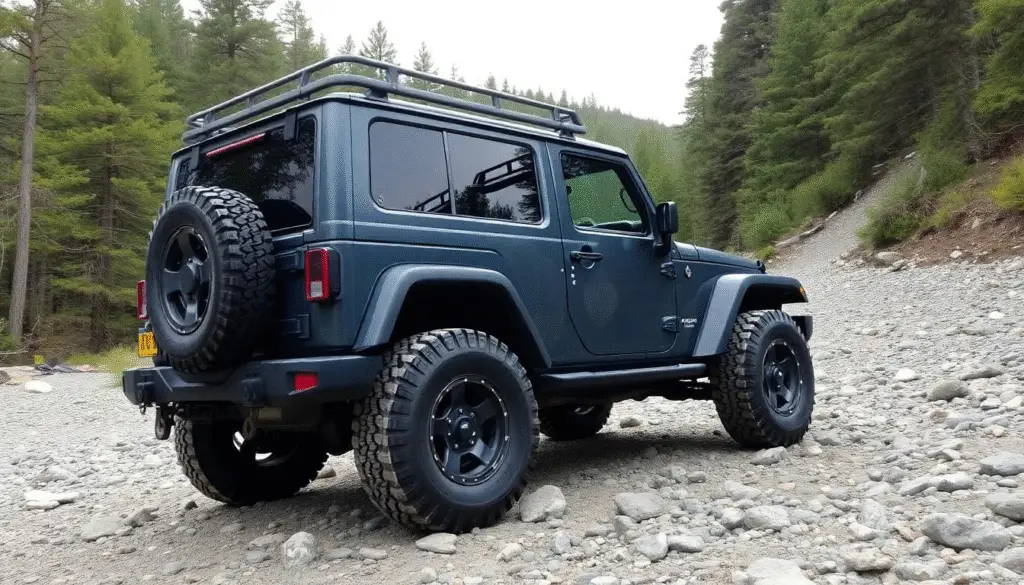
When shopping for the best used off-road SUV you need to carefully weigh the advantages against potential drawbacks to make an informed decision. Understanding these factors helps ensure you select a vehicle that meets your adventure needs without unexpected complications.
Advantages
Used off-road SUVs offer exceptional value compared to new models with savings of $10,000-$20,000 often possible. These vehicles have typically already experienced their steepest depreciation curve giving you more capability for your money.
Many popular off-road models like the Toyota 4Runner Land Cruiser and Jeep Wrangler are engineered for longevity with many examples easily reaching 200,000+ miles with proper maintenance. This proven track record means you can purchase with confidence.
The aftermarket support for established models is vast allowing you to customize your vehicle according to your specific off-roading needs. From lift kits to specialized bumpers options abound for popular models.
Used off-road SUVs often come with modifications already installed saving you both time and installation costs. Finding a responsibly modified vehicle can provide immediate capability upgrades without the premium price.
Buying used is also environmentally responsible as it extends the useful life of existing vehicles and reduces the carbon footprint associated with manufacturing new ones.
Disadvantages
Unknown vehicle history represents a significant risk with used off-road SUVs. Previous owners may have subjected the vehicle to extreme conditions without proper maintenance potentially leading to premature component failure.
Maintenance costs can be higher for older models particularly for luxury options like Land Rover or Mercedes G-Wagon. Parts and service for these vehicles can significantly impact your total ownership costs.
Modified vehicles may have reliability issues if aftermarket parts were improperly installed. Amateur modifications can compromise factory engineering and create unexpected problems requiring costly corrections.
Older off-road SUVs typically lack the latest safety features and technology found in newer models. Features like blind-spot monitoring automatic emergency braking and advanced traction control systems might be absent.
Fuel economy is generally poor in used off-road SUVs especially in models from the early 2000s. Many capable options like the Toyota Land Cruiser or Jeep Wrangler Unlimited average just 15-18 MPG which can strain your budget with today’s fuel prices.
Warranty coverage is limited or non-existent for most used off-road SUVs meaning repair costs come directly out of your pocket. This represents a financial risk that must be factored into your purchasing decision.
How to Inspect a Used Off-Road SUV Before Buying
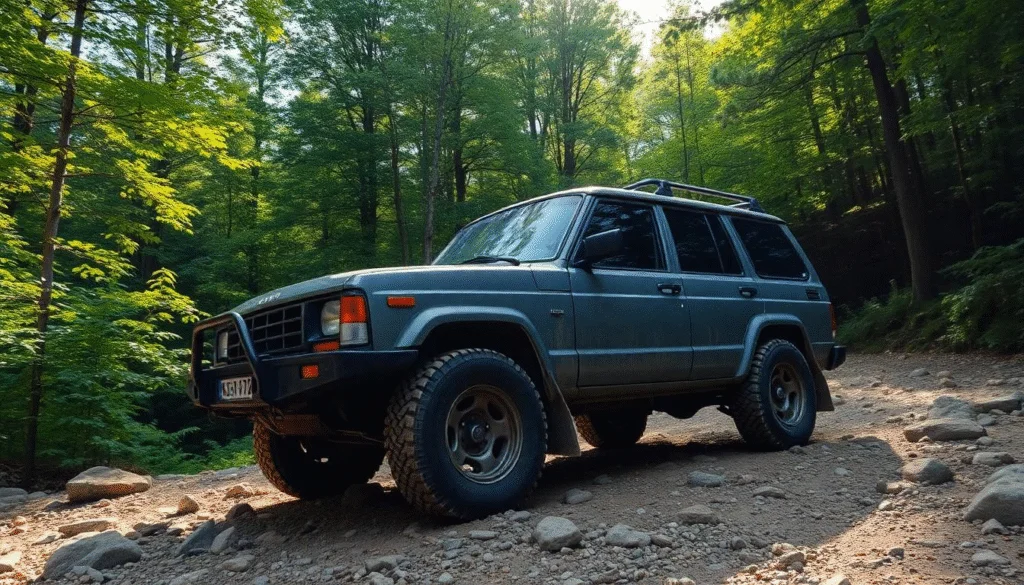
Examine the Exterior and Undercarriage
When shopping for the best used off-road SUV, a thorough exterior inspection is crucial. Walk around the vehicle and look for misaligned body panels, which may indicate previous accidents or poor repairs. Check door seams and panel gaps for consistency. Paint differences between panels often reveal prior damage or repairs.
For off-road vehicles specifically, pay extra attention to the undercarriage. Get underneath the SUV (or use a mechanic’s creeper) to inspect for:
- Scrapes, dents, or bent components
- Fluid leaks from the engine, transmission, or differentials
- Damaged skid plates or protective shields
- Bent or damaged suspension components
- Excessive rust, particularly on frame rails and critical mounting points
A vehicle that’s been used heavily off-road will show some battle scars, but structural damage or severe undercarriage rust should raise serious concerns.
Test the Four-Wheel Drive System
The 4WD system is the heart of any off-road SUV, so testing it thoroughly is essential. During your inspection:
- Shift through all 4WD modes (2H, 4H, 4L) while both stationary and moving
- Listen for unusual noises when engaging the transfer case
- Test the vehicle on various surfaces if possible
- Check if the locking differentials engage properly (if equipped)
- Verify that all 4WD indicator lights work correctly
Pay particular attention to how smoothly the transfer case engages and if there are any grinding noises. In models like the Toyota 4Runner or Jeep Wrangler, the 4WD system should engage with minimal resistance. Hesitation or unusual sounds could indicate expensive repairs in your future.
Assess the Suspension and Tires
A quality suspension system is vital for off-road performance. When inspecting a used off-road SUV:
- Push down on each corner of the vehicle to test shock absorber response
- Look for leaking fluid on shocks or struts
- Check for uneven tire wear, which indicates alignment or suspension issues
- Examine bushings for cracks or deterioration
- Test articulation by driving over uneven terrain (if possible)
Tires tell an important story about how the vehicle has been used and maintained:
| Tire Aspect | What to Look For | What It Means |
|---|---|---|
| Tread Depth | 6/32″ or greater | Adequate remaining life |
| Wear Pattern | Even across tread | Proper alignment and inflation |
| Sidewall Damage | Cuts, bulges, cracks | Possible off-road damage |
| Age | Manufacturing date code | Tires older than 6 years may need replacement |
Remember that replacing a set of quality all-terrain or mud-terrain tires can cost $800-1,500, so factor this into your budget if the vehicle needs new rubber.
Verify Service History and Maintenance
Request comprehensive maintenance records when inspecting a used off-road SUV. Key maintenance items to verify include:
- Timely oil changes and filter replacements
- Transfer case and differential fluid services
- Transmission maintenance
- Timing belt/chain service (if applicable)
- Front end alignment history
For popular models like the Jeep Wrangler or Toyota 4Runner, check if recommended service intervals were followed. These vehicles can last 300,000+ miles when properly maintained, but neglected maintenance can lead to premature failures.
If the seller can’t provide records, consider using the VIN to obtain a vehicle history report from services like CARFAX or AutoCheck. This can reveal accident history, title status, and sometimes service records.
Look for Aftermarket Modifications
Many used off-road SUVs come with aftermarket modifications. While quality upgrades can enhance capability, poorly installed modifications may cause problems:
- Lift kits: Check for professional installation and quality components
- Winches: Test functionality and inspect mounting points
- Light bars and electrical accessories: Verify proper wiring without modifications that could void warranties
- Engine modifications: Be cautious of performance chips or extensive engine alterations
Ask the seller for documentation on all modifications, including who performed the work and what components were used. Quality modifications from reputable brands can add value, while cheap or DIY installations might become headaches.
Arrange a Pre-Purchase Inspection
Even if you’re knowledgeable about vehicles, having a professional mechanic inspect your potential purchase is worth the $100-200 investment. Ideally, find a mechanic who specializes in off-road vehicles or the specific brand you’re considering.
A professional can:
- Perform computer diagnostics to check for stored trouble codes
- Inspect areas difficult to access without a lift
- Identify issues that might not be obvious during a test drive
- Provide an unbiased assessment of the vehicle’s condition
This small investment could save you thousands in unexpected repairs and help you negotiate a fair price based on the vehicle’s actual condition.
Best Places to Buy Used Off-Road SUVs
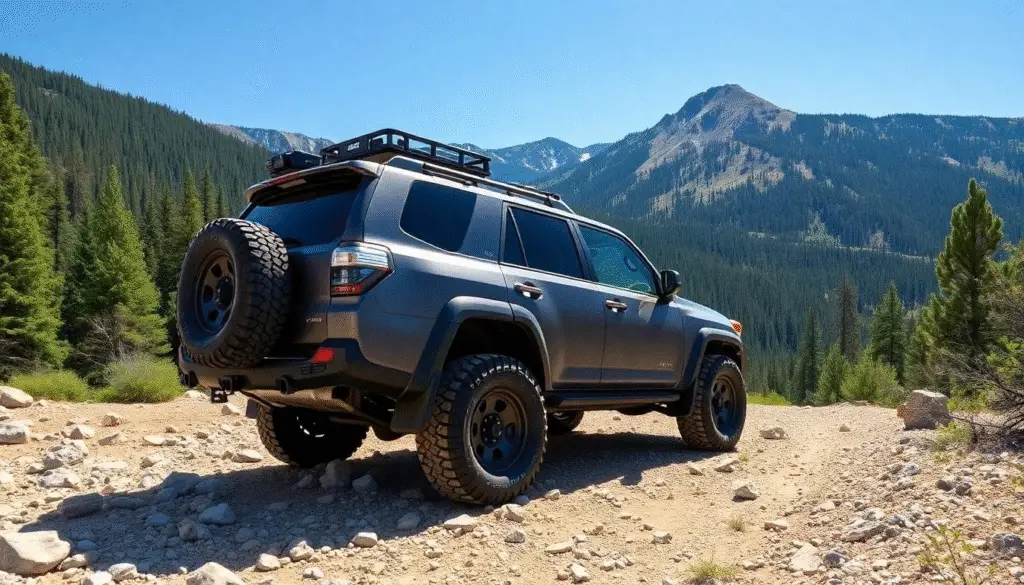
Dealership Networks with Certified Pre-Owned Programs
When shopping for a used off-road SUV certified pre-owned (CPO) programs offer significant advantages. These vehicles undergo comprehensive inspections and typically come with extended warranties. Toyota’s CPO program is particularly valuable when looking for a 4Runner or Land Cruiser as these inspections verify the 4WD system’s condition. Similarly Jeep’s CPO program provides peace of mind for Wrangler and Grand Cherokee purchases with additional powertrain coverage. CarMax and AutoNation also maintain large inventories of used off-road SUVs with no-haggle pricing policies that simplify the buying process.
Specialized Off-Road Vehicle Retailers
Several retailers focus specifically on off-road vehicles providing expert knowledge and curated selections. Companies like Overland Exchange and Rocky Road Outfitters specialize in pre-owned off-road SUVs that have been properly maintained and often come with thoughtful modifications. These specialized dealers understand the difference between beneficial upgrades and problematic ones which is crucial when evaluating modified vehicles. Their staff typically have real off-road experience enabling them to answer technical questions about 4WD systems ground clearance and trail capabilities that general dealerships might not address adequately.
Online Marketplaces and Resources
Online platforms have revolutionized the used SUV buying experience. Sites like Cars.com and AutoTempest allow you to search nationwide inventories of used off-road SUVs with specific filters for 4WD locking differentials and other essential off-road features. For enthusiast-owned vehicles consider specialized forums such as IH8MUD for Toyota Land Cruisers JeepForum for Wranglers and Expedition Portal for various overland-ready SUVs. Facebook Marketplace and Craigslist can uncover local deals but require more diligence in vehicle inspection and history verification.
Geographic Considerations
Your location significantly impacts both availability and condition of used off-road SUVs. Western states like Colorado Utah and Arizona often have abundant selections of well-maintained off-road vehicles with owners who understand proper maintenance of 4WD systems. However coastal regions may present challenges with saltwater exposure causing undercarriage rust. Southern states generally offer rust-free options but check for sun damage to interiors and rubber components. Consider traveling to purchase from dry climate regions if seeking older models as the preservation benefits often outweigh travel costs.
| Region | Advantages | Common Issues to Check |
|---|---|---|
| Western States | Abundant selection, enthusiast maintained | Higher prices, possible trail damage |
| Southern States | Less rust, more affordable | Sun damage, cooling system issues |
| Coastal Areas | Often loaded with options | Potential salt exposure, undercarriage rust |
| Midwest | Good value, hunting vehicle conversions | Winter road salt exposure, rust issues |
| Northeast | Good deals in spring/summer | Significant rust concerns, frame integrity |
Final Verdict: Choosing the Right Used Off-Road SUV
Your perfect used off-road SUV is waiting out there – whether it’s a rugged Jeep Wrangler trail master or a versatile Toyota 4Runner that balances daily driving with weekend adventures. By focusing on reliability reputation models with proper 4WD systems and adequate ground clearance you’ll find exceptional value in the pre-owned market.
Remember to thoroughly inspect any vehicle’s history and condition before purchase and consider how maintenance costs fit into your long-term budget. The right used off-road SUV offers substantial savings while delivering the capability you need for outdoor exploration.
With proper research and patience you’ll discover a vehicle that delivers both off-road thrills and practical transportation without breaking the bank. Your off-road adventures await!
Frequently Asked Questions
What are the main benefits of buying a used off-road SUV?
Buying a used off-road SUV offers significant cost savings ($10,000-$20,000 less than new models), proven reliability from established models like Toyota 4Runner, robust aftermarket support for customization, and environmental benefits by extending vehicle life. Used vehicles have already demonstrated their durability and performance capabilities, making them a practical choice for outdoor enthusiasts working within a budget.
Which used off-road SUVs are most reliable?
The Toyota 4Runner and Land Cruiser consistently rank highest for reliability, followed by the Lexus GX470/460 and certain Jeep Wrangler models. These vehicles routinely exceed 200,000 miles with proper maintenance. Toyota vehicles typically incur lower long-term maintenance costs compared to European competitors. Be cautious with certain years of Land Rover Discovery and Jeep Grand Cherokee, which may have more reported issues.
What features should I look for in a used off-road SUV?
Focus on proper 4WD systems with low-range gearing, adequate ground clearance (8+ inches), favorable approach/departure angles, locking differentials, and quality traction control systems. Check for solid suspension systems with good articulation. Examine underbody protection and consider vehicles with factory skid plates. For serious off-roading, prioritize models with disconnecting sway bars and all-terrain tires.
What is the price range for a good used off-road SUV?
Used off-road SUVs generally fall into three price categories: budget options under $15,000 (older Jeep Wranglers, Nissan Xterras), mid-range options between $15,000-$30,000 (newer Toyota 4Runners, Jeep Wrangler JKs), and premium options above $30,000 (Toyota 4Runner TRD Pro, Land Rover Discovery, newer Wrangler Rubicons). Your choice should balance your adventure aspirations with financial reality.
How do I inspect a used off-road SUV before buying?
Check the exterior and undercarriage for damage, rust, and leaks. Test the 4WD system in all modes. Assess suspension components and inspect tire wear patterns. Verify comprehensive service history and maintenance records. Be cautious of poorly executed modifications. Have a professional mechanic perform a pre-purchase inspection to identify hidden issues. Check for off-road-specific damage like bent frames or axles.
What are the common issues to watch for in used off-road SUVs?
Look for drivetrain and transfer case problems by checking for unusual noises and smooth shifting between 4WD modes. Inspect thoroughly for undercarriage rust, especially on frame rails and suspension components. Be cautious of heavily modified vehicles without proper documentation, as amateur modifications can create reliability issues. Check for signs of water damage or extreme off-road abuse that could compromise structural integrity.
Which used off-road SUV is best for daily driving and off-roading?
The Jeep Grand Cherokee offers the best balance of on-road comfort and off-road capability. The Toyota 4Runner provides excellent reliability and good all-around performance. The Land Rover Discovery delivers luxury comfort with impressive off-road prowess. The Jeep Wrangler excels off-road but sacrifices some highway comfort. Choose based on how much time you’ll spend commuting versus off-roading.
Where is the best place to buy a used off-road SUV?
Dealerships with Certified Pre-Owned programs offer peace of mind with comprehensive inspections and warranties. Specialized off-road retailers provide expert knowledge and pre-vetted vehicles. Online marketplaces allow nationwide searches with specific filters for off-road features. Consider geographic location when buying, as vehicles from dry climates generally have less rust and corrosion issues compared to those from coastal or snowy regions.
